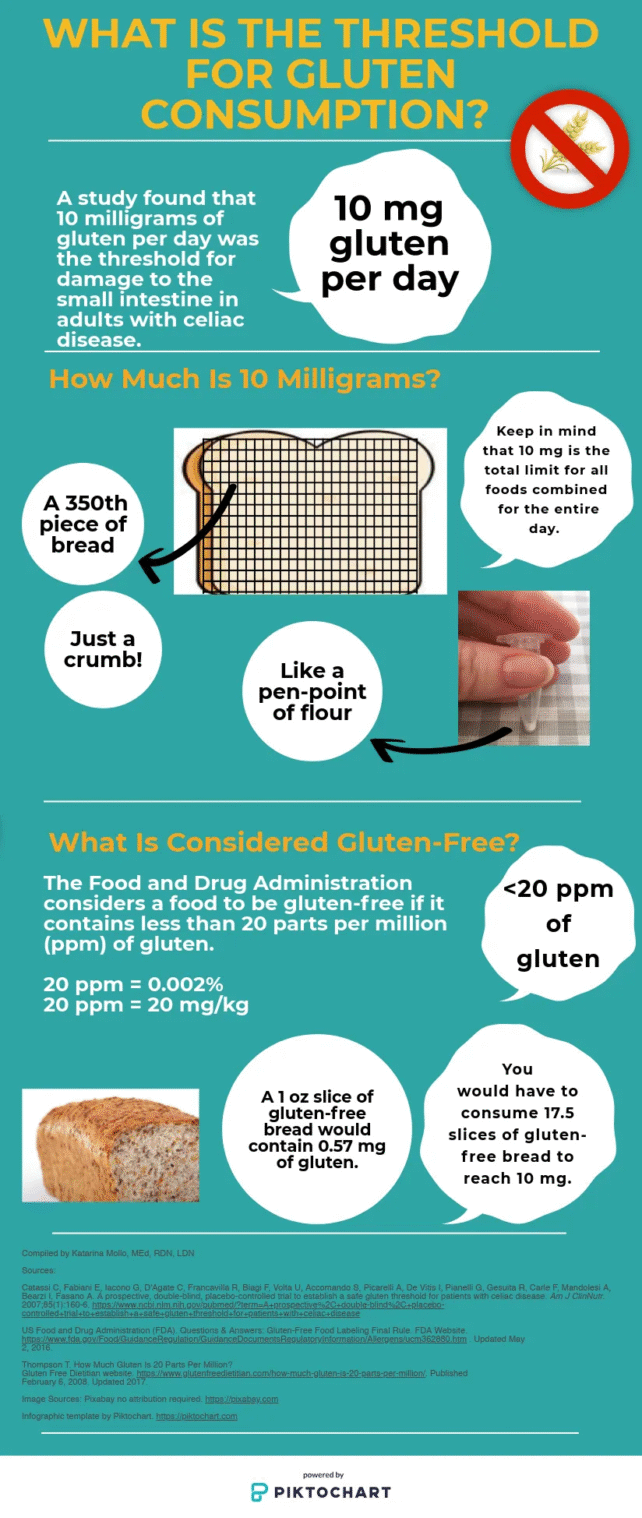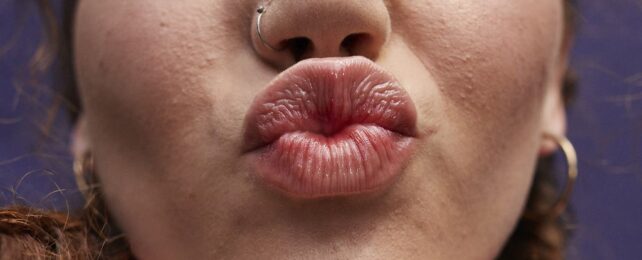When someone is diagnosed with celiac disease, they have a lot of questions, but there's a common one that doctors say they get a lot: Can you kiss someone who has just eaten gluten?
In recent surveys, as many as 40 percent of celiac patients say they are hesitant to swap spit with romantic partners who eat gluten for fear they will end up with a mouthful of the irritant. Anecdotally, some online even report experiencing cracked lips, mouth sores, diarrhea, or gut issues after smooching.
That's not exactly a romantic outcome. But is kissing a real and common source of gluten contamination, or are these fears overblown for the average celiac patient?
The truth is, very few studies have investigated how much gluten remains in the mouth after eating, or if that gluten can be passed to another via saliva.
At last, a small new trial brings some preliminary comfort to millions.
The findings were recently presented at the Digestive Disease Week (DDW) conference in California, and while they are not yet peer-reviewed, they suggest that kissing someone who has just eaten gluten is not an issue most celiac patients need to worry about, or go to extreme measures to avoid.
"Everyone worries about whether gluten is getting into their food at a restaurant, but no one really looked at what happens when you kiss afterwards," explains nutritionist Anne Lee from Columbia University.
"I felt it was important to do research to see if there was any actual risk."
Lee and her colleagues' experiment involved 10 couples, in which one partner had celiac disease and the other didn't. The one without the autoimmune disease consumed 10 saltine crackers before kissing their partner for 10 seconds.
In one trial run, participants waited five minutes after eating to kiss their partner. In another trial, they drank four ounces (120 ml) of water before kissing their partner.
Nobody reported any celiac symptoms in the 12 hours after the kiss. Only one person showed gluten in their urine after the kissing.
In both tests, the amount of gluten measured in the celiac person's mouth was very minimal. In the majority of cases, and all instances with a glass of water before kissing, it was less than 20 parts per million (ppm).
That's a concentration, not an absolute amount, but 20 ppm is an accepted standard that is allowed in gluten-free products in most countries, including the United States. In places like Australia, standards can be as strict as 3 ppm.
Even in those stricter cases, however, research suggests a small fraction of gluten-free products can still slip through the cracks with higher amounts of the protein. Thankfully though, people with celiac disease face low risks of getting sick from contaminated gluten-free foods.
"The risk from kissing?" asks gastroenterologist Vincent Ho in a new piece for The Conversation. "Even lower. If you want to look out for your loved one with celiac disease, how you prepare food is more important."

When adding up all the foods eaten in a day, the US National Celiac Association says that sticking to gluten-containing foods below 20 ppm would protect most people from intestinal damage.
"Patients with celiac disease can be more relaxed, knowing that the risk of gluten cross-contact through kissing a partner who has consumed gluten can be brought down to safe levels if food is followed by a small glass of water," says Lee.
The newest trial needs to be replicated with larger sample sizes, and it's probably not robust enough to convince a celiac patient with personal experience of being 'glutened' by kissing that they don't need to take any precautions.
That said, celiac disease experts have long suspected that contamination from kissing is generally not much of a concern.
"It is unlikely that kissing will cause a reaction in most people with celiac disease, but any risk can be further reduced by asking your partner to brush their teeth, rinse their mouth, or waiting at least an hour to kiss after they have consumed gluten," the Canadian Celiac Association of British Columbia advised on its Facebook page earlier this year.
"As always, do what feels right for you and your health!"
The research was presented at this year's Digestive Disease Week conference.
